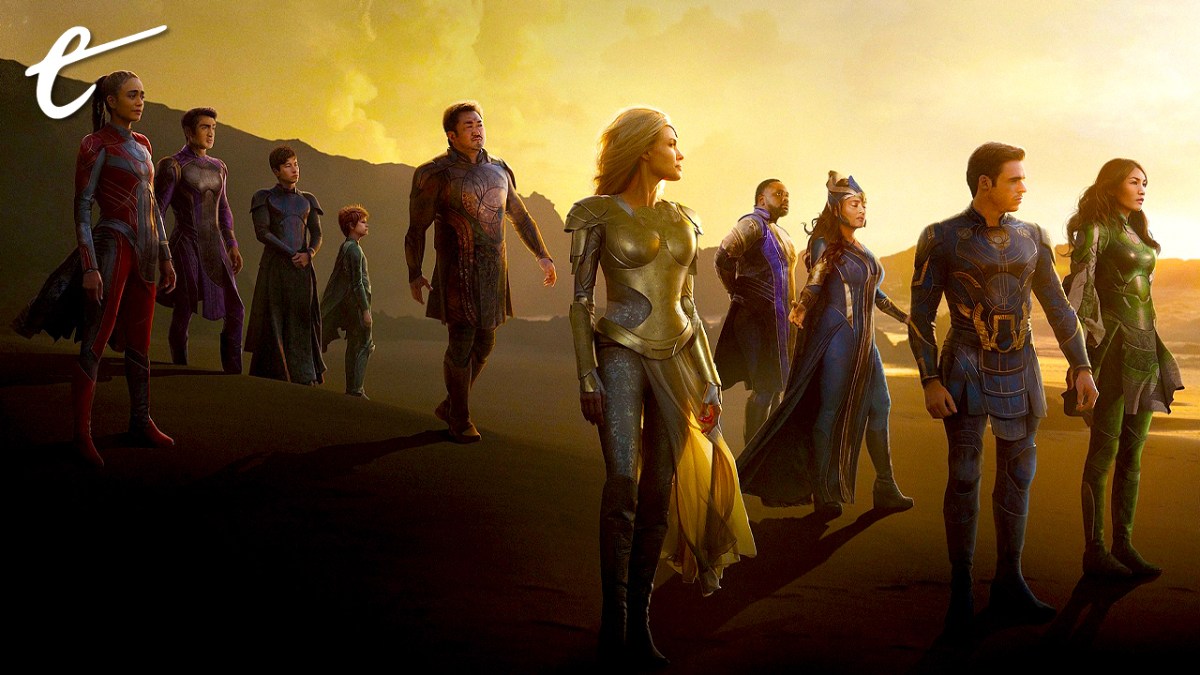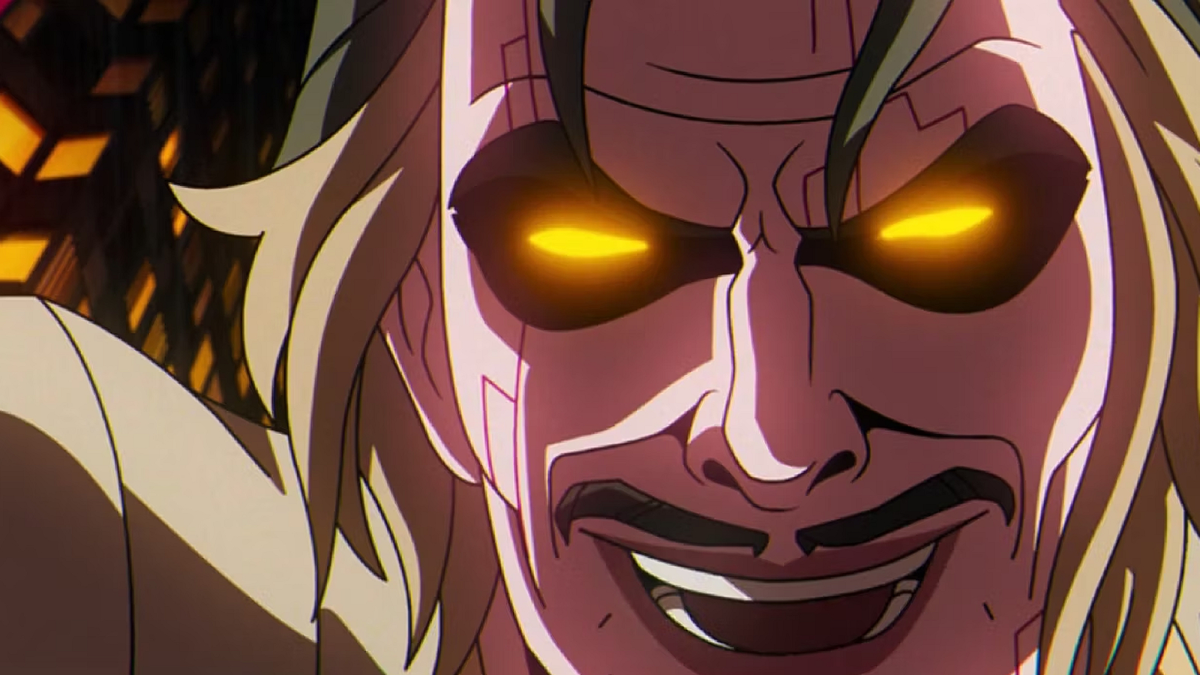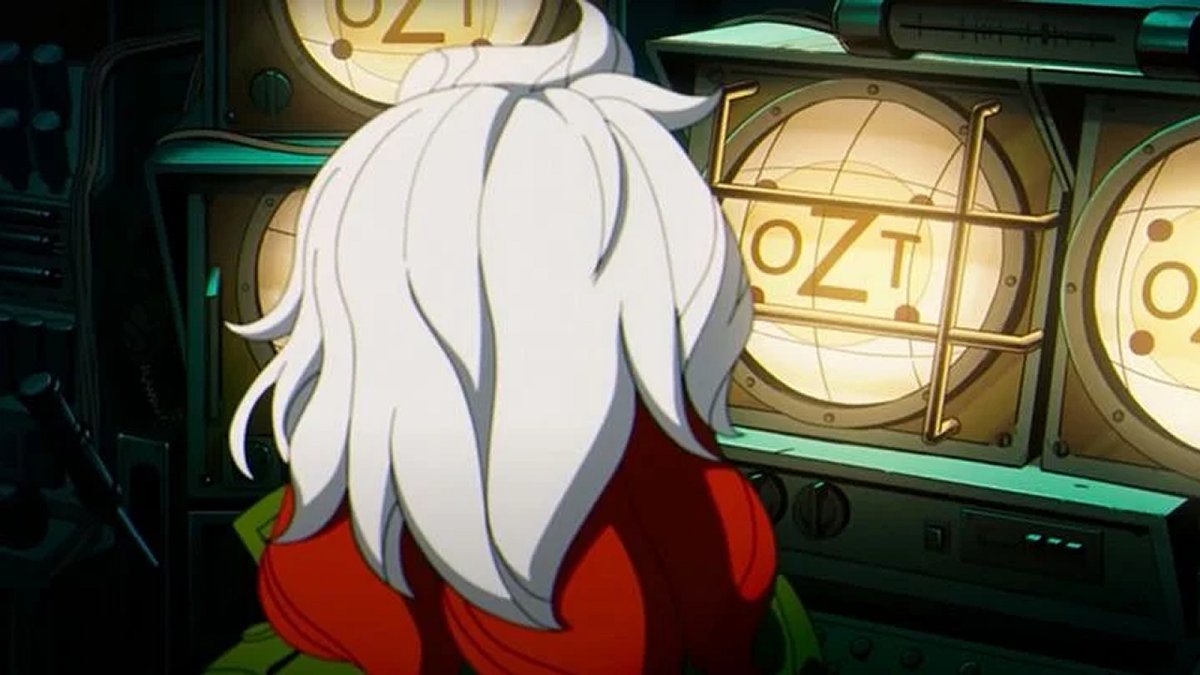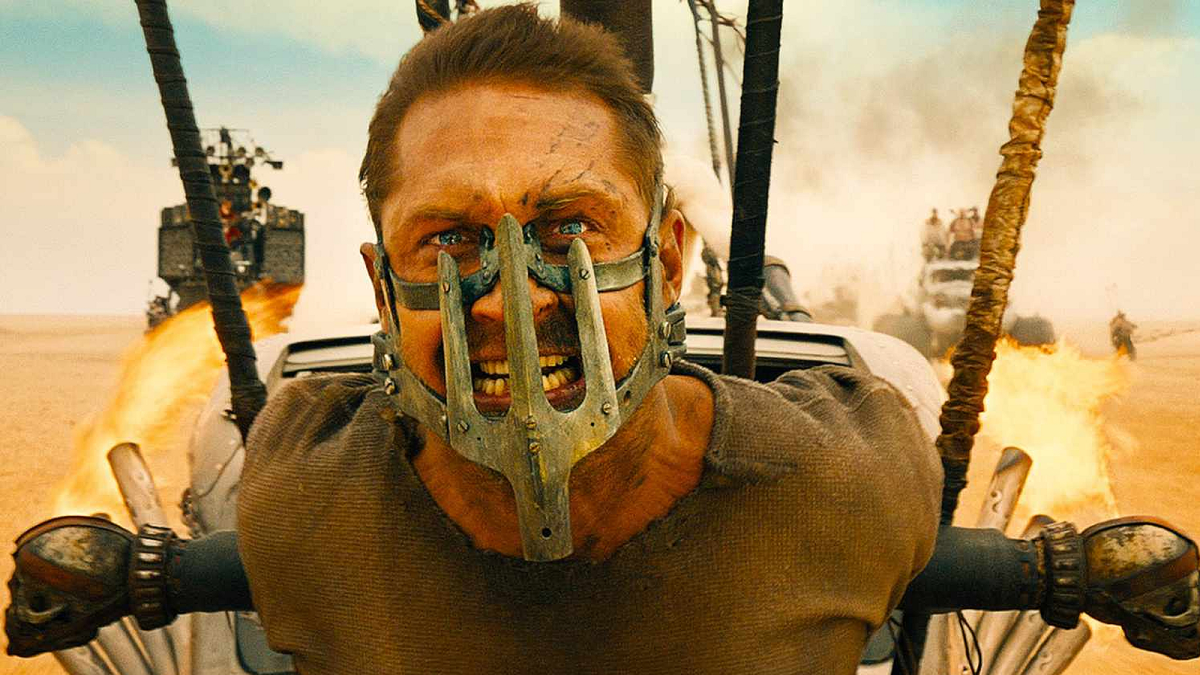Chloé Zhao’s Eternals is not an entirely successful film, but it is an interesting and ambitious addition to the comic book movie canon.
Before her work on Eternals, Zhao was best known for her passive and even documentarian approach to her narrative features. Zhao would submerge herself into a subculture and observe her subjects without judgment or interference. The Rider was built around Zhao’s observation of Brady Jandreau. The film is built around a fictionalized account of an injury that Jandreau received, and every cast member in the film is playing a version of themselves.
Zhao is an odd choice for a bombastic and big-budget superhero epic. The same year that Eternals released, Zhao won both the Best Director and Best Picture Oscars for her work on Nomadland, a story built around the real-life community of people who lived a truly itinerant existence out of the backs of vans. Zhao attracted controversy for her cooperation with Amazon on the film, depicting the seasonal work that the company provided without acknowledging its exploitative practices.
This controversy gets to the heart of Zhao’s filmmaking. Zhao studies her subjects with a neutrality that is occasionally frustrating. Nomadland isn’t angry about the financial crisis that has left Fern (Frances McDormand) homeless and dispossessed; it is just interested in the life that she has found herself leading. Zhao doesn’t tell her audience what is right and what is wrong. She just presents what she sees and lets the audience grapple with it.
There are certainly valid criticisms to be made of such passive neutrality when dealing with real-world exploitation. After all, Amazon’s exploitation of its workforce is not a value-neutral act. However, this is an intriguing perspective to apply to a superhero blockbuster, which is the dominant form of modern big-budget American cinema. Placed at the helm of a movie with a budget of $200M, Zhao does what she always does: she observes.
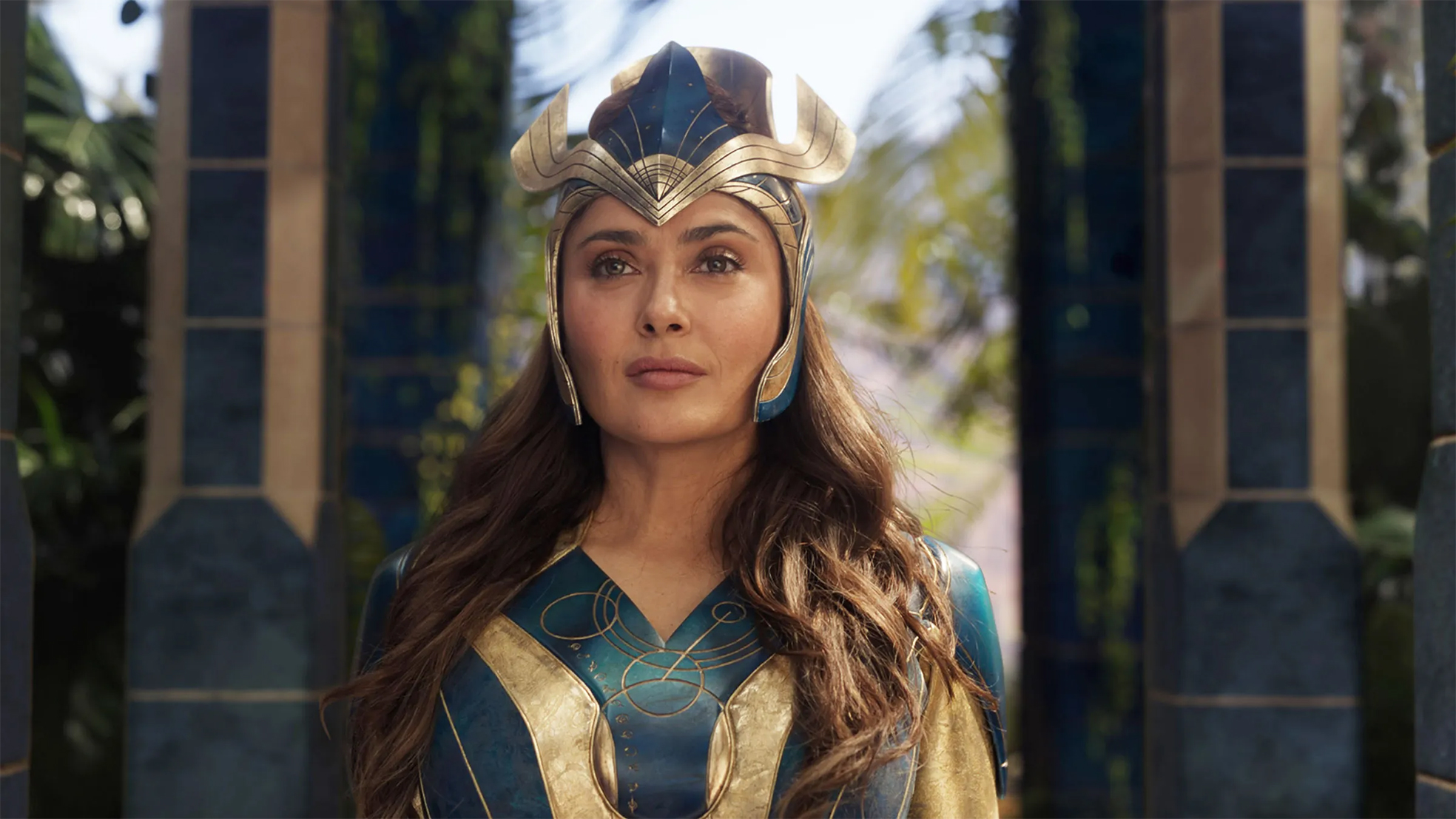
Eternals is not just a movie with superheroes. It is a movie about superheroes. It is engaged with the fundamental idea of superheroes. The movie leans aggressively into archetypes. It is the rare Marvel Studios production to explicitly mention both Batman and Superman. This is not the only allusion to Marvel’s “Distinguished Competition.” Interestingly, the eponymous superheroes are presented as analogues to the Justice League rather than the Avengers.
Ikaris (Richard Madden) is transparently modeled on Superman. Athena (Angelina Jolie) draws heavily from depictions of Wonder Woman, with rumors circulating that Jolie had turned down an earlier opportunity to play the iconic DC heroine. At the climax, Phastos (Brian Tyree Henry) generates mental constructs that recall Green Lantern’s ring-slinging. Speedster Makkari (Lauren Ridloff) recalls the Flash, right down to her red color scheme.
It is interesting to see such overt references to DC characters in a Marvel Studios film, but it perhaps speaks to the difference between the two companies. Traditionally, as the company associated with the earliest exemplars of the genre, it has been argued that DC deals in “purer archetypes” than its younger competitor. Of course, Eternals doesn’t just riff on the classic DC superheroes. It also draws heavily from Watchmen, Alan Moore and Dave Gibbons’ classic genre-redefining comic book.
Watchmen is built around the investigation into the murder of the superhero known as the Comedian. This death causes a fractured superhero family to come back together. The story interspaces these reunions with flashbacks that illuminate various characters. The heroes inevitably discover that the culprit is among them and that there is a vast and horrific conspiracy at play that will have dire consequences for all of mankind.
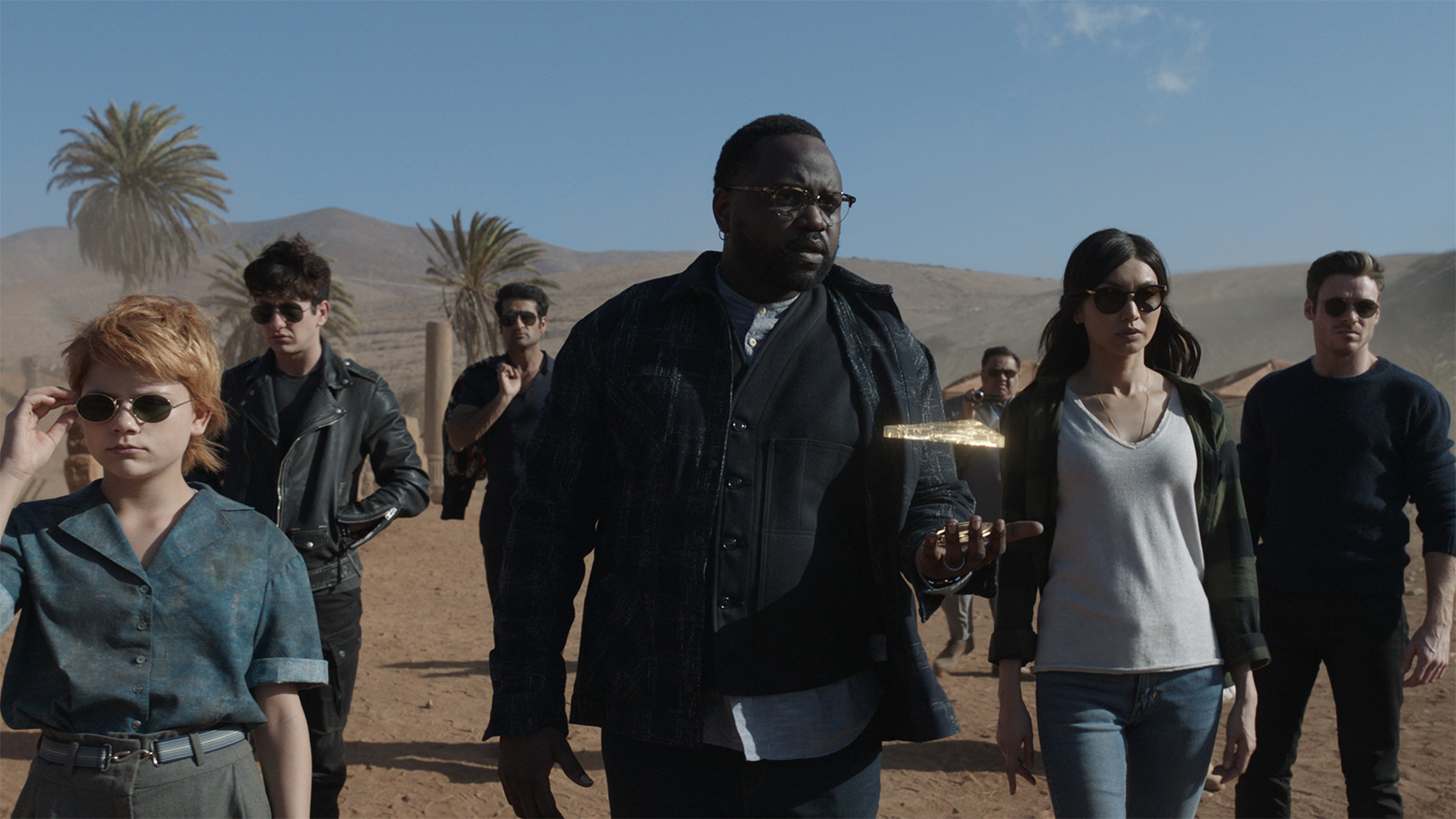
Eternals follows a similar template. Sersi (Gemma Chan) is motivated to reunite her fractured superhero team when old enemies resurface. She discovers that the group’s former leader, Ajak (Salma Hayek), has been murdered. They eventually identify the culprit: their leader, Ikaris. Ikaris killed Ajak because she threatened to reveal the true purpose of the Eternals; they exist to prepare Earth for an extinction-level event, the birth of a new Celestial, a gigantic being that has been gestating inside the planet’s core.
When Eternals was announced, a lot of press pondered the decision to build a film around a team of obscure characters created by Jack Kirby during his second tenure at Marvel. Zhao exploits the general audience’s lack of familiarity with the team, framing them as broad archetypes embodying the abstract concept of superheroes. Eternals riffs on the most iconic superheroes in the world and draws from the genre’s most respected narrative.
The Marvel Cinematic Universe has never been particularly introspective. As much as the franchise embodies modern superhero cinema, it has had very little to say about superheroes as literary archetypes since the similarly messy Avengers: Age of Ultron. Since Captain America: Civil War, the films have largely embraced an uncritical power fantasy. Superheroes are cool, and it is fun to watch them use their superpowers however they see fit. Any attempt to interrogate that is to ruin the fun.
Ikaris is the villain of the movie in part because he assumes that his power gives him the right to decide for others. “You’re the strongest,” Sprite (Lia McHugh) urges him. “You should be making this decision.” He argues with Phastos that the Celestial should be born, destroying the world. “If we gave humanity the choice, how many of them would be willing to die so that billions more could be born?” he asks. Phastos points out the fallacy in his argument, “We’re not giving them a choice.”
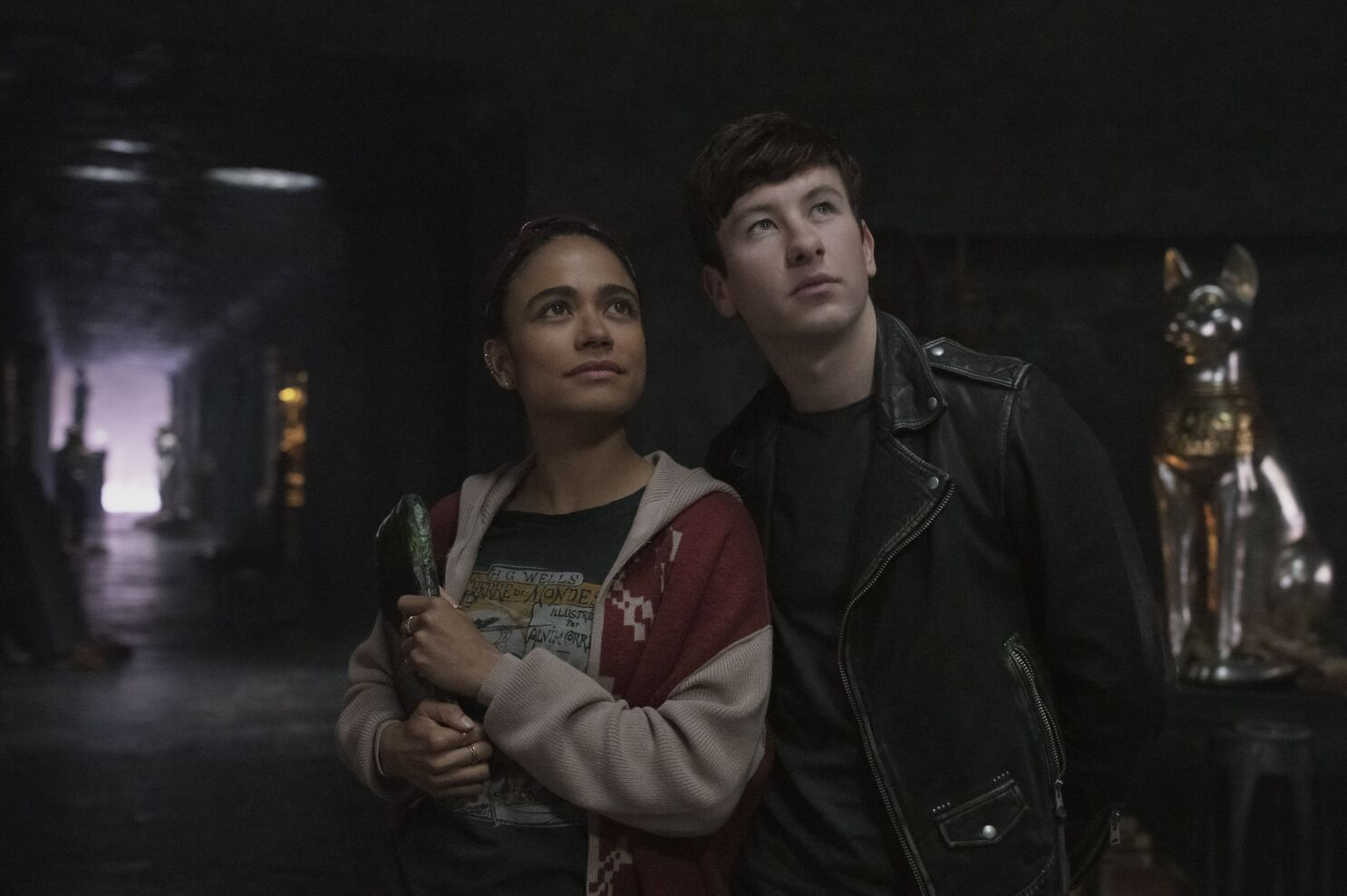
Early in the film, Sersi is teaching a class of children. “Apex predators do hunt their prey for food, like all predators,” she explains. “But one thing that sets them apart is that there are no other animals in their habitat strong enough to hunt them.” It initially seems like she is talking about the Deviants, the creatures that the Celestials created the Eternals to hunt. However, over the course of the film, it becomes clear she is talking about the Eternals.
Eternals is skeptical about the idea of superheroes as beings that are granted moral authority by virtue of holding greater power. The movie explores the inherent conservatism of this power fantasy, where the primary objective of those holding power is to prevent those beneath them from rising up to claim it. The Eternals are ultimately defenders of the status quo. They fight not for the good of mankind, but to preserve the established order.
Ikaris is devoted to the Celestials, and he believes that the universe can only ever be as it is. “I’ve always thought of the Celestials like the ocean,” he tells Sersi. “They give life and they take life away without bias. If they were gone, this universe would eventually end. What you’re trying to do is free humanity from the natural order.” Ikaris articulates a terrifying perspective, one that is fundamentally opposed to any idea of progress or evolution. It is also how superheroes think.
Early superhero stories were socially radical, with Superman confronting war profiteers and slum conditions. They dared to imagine a better world. In the decades since, superheroes have transformed into defenders of the status quo. This extends to the genre itself. If religion is the “opium of the people,” what of a world where superheroes are framed as “the gods of modern mythology” and organized fandom is a religion? Eternals grapples with this question.
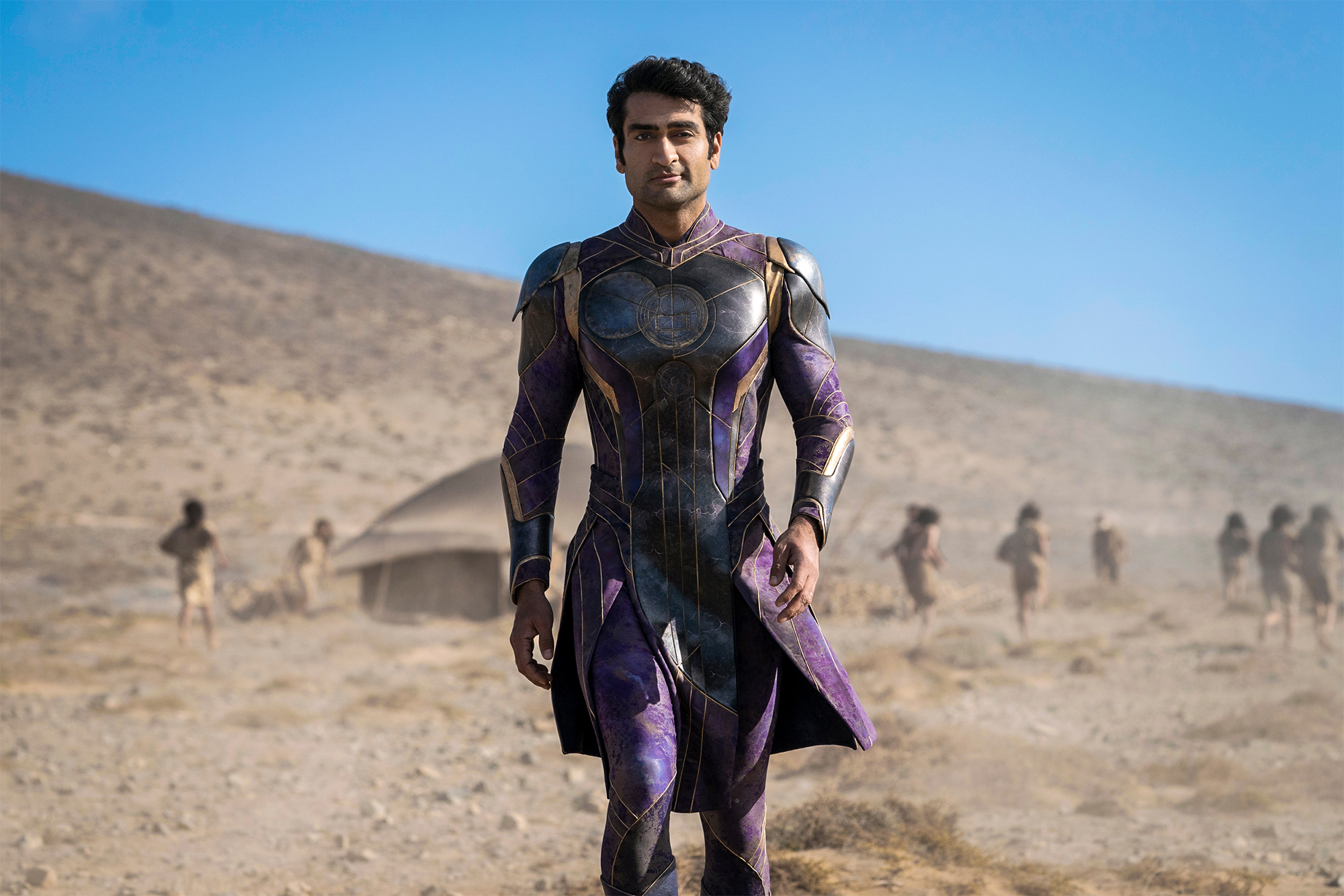
Eternals is preoccupied with religion. The Eternals believe that they originated on “the planet Olympia” and worship the Celestial known as Arishem (David Kaye), who “created the first sun and brought light into the universe.” According to Ikaris, the Eternals “exist for Arishem.” Trapped in a child’s body, Sprite laments, “Why did Arisham make me this way?” Even after discovering their true purpose, Kingo (Kumail Nanjiani) admits, “I still have faith in Arishem.”
Eternals even goes so far as to suggest that some of the team have fashioned themselves into gods. At one point, the group discovers Druig (Barry Keoghan) living in the Amazon with a cult that he controls with his mind. “You are not a god,” Kingo warns his old friend. “You know that, right?” Druig finds something amusing in being chastised by a world-famous Bollywood celebrity. “How ironic,” he muses. “Kingo, the movie star.”
There is none-too-subtle metatext at play. Sersi discovers the Eternals are mass-produced models that can be wiped and reset at the whims of the Celestials. They are effectively action figures. They are even shot like toys in packaging. The Celestials use the Eternals to pacify the worlds that their offspring will consume. Late capitalism uses these stories to placate audiences, numbing them with spectacle as the world collapses around them.
Eternals recalls director James Mangold’s argument that Logan was about how people “hide in consumerism, distracted in fantasy, as our real world burns.” It also evokes the criticism of the superhero genre by critics like Angelica Jade Bastién, arguing that these movies sell audiences “a vacant rendition of the change we actually want.” Zhao casts her neutral and passive eye across the superhero genre, refusing to accept it as possessing inherent worth.
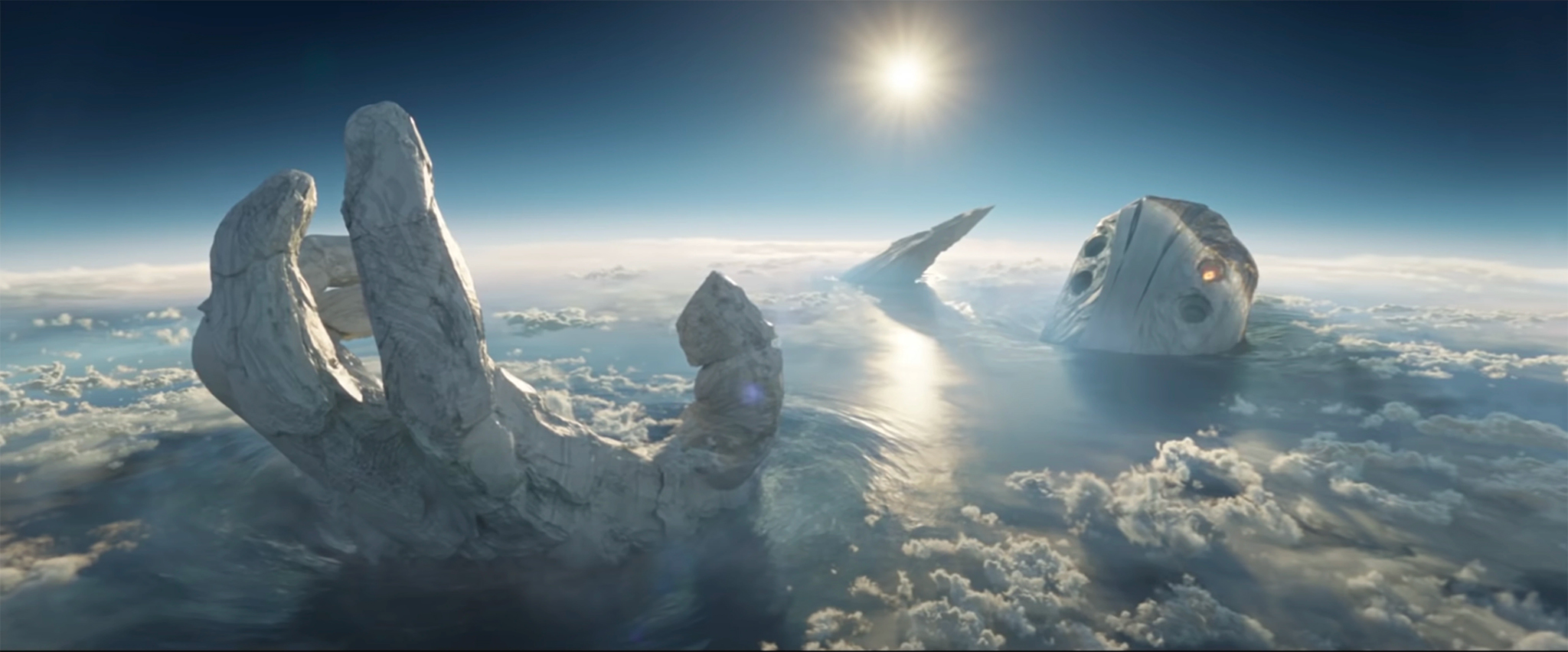
This neutrality plays out at the climax. Eternals inevitably builds to the obligatory CGI-dominated climax, but Zhao puts an interesting spin on it. In any other superhero movie, the heroes would instinctively fight together against the emergence of the Celestial. In Eternals, the characters fight over whether they should fight the emergence of the Celestial. Kingo literally walks out of the movie in its third act, unwilling to get drawn into it. “I refuse to hurt any of you for my beliefs,” he explains.
In this sense, Eternals ties back to one of the definitive Jack Kirby stories. “The Galactus Trilogy” is widely accepted as one of the most important stories in the Marvel canon, a three-issue arc in the company’s Fantastic Four title that reportedly originated with a four-word pitch from Stan Lee to Kirby: “Have them fight God.” As Sersi’s team fights to prevent the emergence of the Celestial in the Pacific Ocean, Eternals suggests an even more provocative premise: Have them abort God. What gods do humanity create and deserve?
Eternals asks what it means for its heroes to decide to save the world rather than to defend the status quo. It interrogates the underlying assumptions of the genre in its present form. Even aside from its very real problems, it’s easy to see why the film was divisive. As with Zhao’s other projects, Eternals takes a probing and insightful look at its subject. It presents the superhero genre as it often is, rather than how it would like to be seen.

